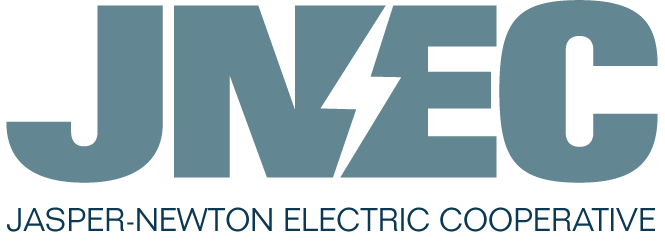How do I establish a new service with JNEC?
To establish a new service with JNEC, visit our page on start/stop service here. You can contact us here, or call us at 409-423-2241 or 800-231-9340.
What does it cost to establish new service?
Members of JNEC are required to pay a one-time refundable membership fee of $20 and a non-refundable service fee of $35. A security deposit may be required, depending on the applicant’s credit history, for residential service.
What are JNEC’s deposit requirements?
In an effort to reduce uncollectible debt and mitigate financial risk, JNEC requires a deposit for new applicants and members to pay deposits in certain situations.
Can the deposit be waived?
Residential Accounts – If no credit history with JNEC exists, the cooperative will charge a deposit. However, there are options to waive the deposit for residential service. JNEC verifies the credit score of new members through Online Utility Exchange; generating a credit check. If the credit score meets JNEC standards, then the deposit may be waived. In addition, a new member may provide a 12-month letter of credit from their previous electric utility identifying pay history. If the pay history meets JNEC’s standard, the deposit may be reduced or waived. Deposit may also be waived if the applicant furnishes in writing a satisfactory guarantee to secure payment of bills by a guarantor meeting JNEC’s standard.
Commercial Accounts – Deposits must be paid on commercial accounts. However, as with with residential accounts, the deposit may be waived if a 24-month letter of credit is provided. Credit checks are not accepted for commercial accounts. Contractors building several homes are allowed to have one deposit for several accounts, provided these accounts are kept current.
When will my security deposit be returned?
Residential Accounts – Residential deposits are refunded, if an excellent payment history (as defined by JNEC) is maintained, for 12 consecutive months. The deposit is returned in the form of a refund check, when the member meets the above mentioned qualifications, or it is applied towards the final bill. If there is any remaining deposit owed to the member, a check will be mailed; therefore, it is important for JNEC to have your forwarding address.
Why am I required to provide personal identification?
JNEC requires valid identification to prevent member identity theft, frequent reconnections, and the abuse of our application process. All new applicants and current members requesting changes to their accounts are required to provide identification. Your security is important to us, and all personal information obtained by the Cooperative will be safely collected, and stored and encrypted in our system.
How long does it take to get power to a new home and what is required?
It depends on the circumstance; therefore, JNEC does not promise construction completion dates. If line construction is necessary, JNEC requires a minimum notice of 10-15 working days. In order to begin service the following is required: Application must be made for service, meter base installed and ready for JNEC inspection. Once inspection, Fees must be paid, and Easement requirement must be satisfied. Failure to provide these documents may delay the process. Connection for services, other than temporaries and agricultural uses, must have power authorization before JNEC can set the meter. Other factors to consider when requesting service:
- Weather can cause delays in the construction process.
- Services to existing subdivisions may not take as long to connect because the primary service is already installed.
- A new home, that hasn’t had power before, may need to have right of way obtained or cleared. Also, poles may need to be set in order to get service to the home.
Can I have my overhead Service changed to underground and how much will it cost?
New permanent underground service can be installed upon request for all residential services (including mobile homes) along with barns, wells, shops, storage buildings, and other non-permanent residences, and a charge will be incurred by the member. This charge is determined by JNEC’s engineering department. Changing existing overhead service to underground will incur a higher charge. Underground service lines are more expensive to install than overhead services, but do not require as much maintenance.
